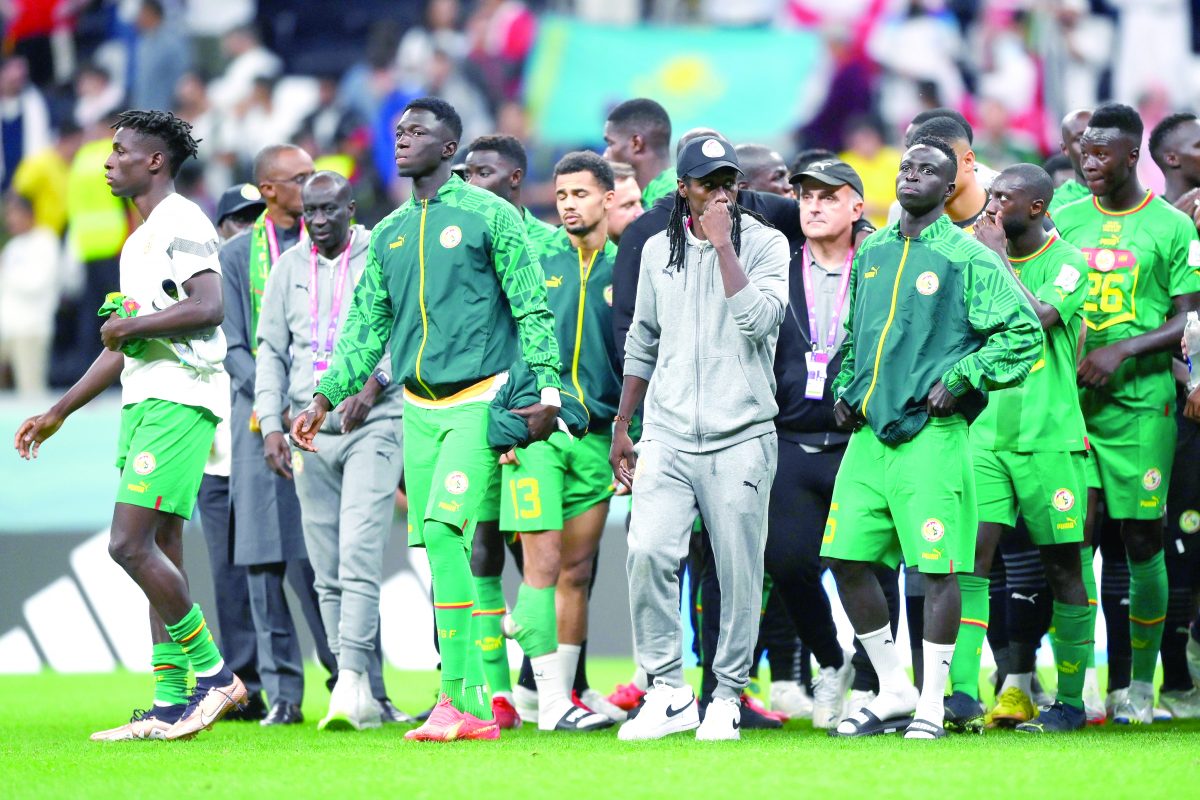African performances at Qatar World Cup mark a definitive moment in football

For Africa to have multiple teams go beyond the group phase to reach the Round of 16 in a World Cup is a milestone. The remarkable result at the 2022 men’s Fifa World Cup in Qatar – which saw Senegal and Morocco move into the knockout stage is Africa’s best performance at the World Cup since 2014. That year both Nigeria and Algeria reached the final 16. This is a pleasing performance after a dismal 2018 World Cup when none of the African representatives went beyond the group stage.
Reaching the Round of 16 is an important marker, but what could be even more sustaining is having Morocco reach the final eight in the quarter-finals. Senegal’s hopes were dashed by a knockout loss to England. Previously, three African teams have reached the quarter-finals: in 1990 (Cameroon), 2002 (Senegal) and 2010 (Ghana).
Reaching the quarter-finals aside, the performance of Africa’s representatives in Qatar points to a definitive moment indicating that the continent can compete with the top teams in the world sustainably.
Presently, the remarkable performance by Tunisia provides an indication. Tunisia did not go beyond the opening round but by beating the defending World Cup champion France 1-0 was a story in itself. It was France’s only loss in the opening round.
Cameroon, too, showed the kind of mettle needed when they stunned favourites Brazil in a gutsy performance, narrowly losing out on a place in the final 16 after Switzerland beat Serbia to edge ahead of them.
But the real story lies ahead. Could Morocco even advance to the medal stages? the team’s manager Walid Regragui clearly thinks so.
He told the media: “We are going to be very difficult to beat … I think African teams can go far. Why shouldn’t we dream of winning the World Cup?”
Africa’s performance in 2022 shines a light on a persistent World Cup issue: rankings. The rankings provided by world football body Fifa have been a bone of contention for years.
This is especially in its use of coefficients – a system based on past scores that is used to rank the collective performance of the teams.
This then determines the number of places each continent or region is given at the World Cup.
Currently, coefficients favour European and South American teams to the detriment of teams from other parts of the world.
It’s not an efficient method for assessing the strength of national teams because the ranking system assigns coefficients based on the performances of the top teams within a continental confederation (like the Confederation of African Football). It makes more sense to assign coefficients based on position on the Fifa rankings rather than on the results from confederations.
First published by The Conversations Africa.
Onwumechelie is Professor of Communications, Howard University
For instance, teams ranked 1 to 50 receive the same coefficient, regardless of their confederation. This prevents weak teams in some confederations benefiting from the performance of strong teams in their confederation. Presently, top teams in weak confederations are disadvantaged because their wins are impacted by lesser coefficients in the calculation of points earned in the ranking equation.
Although Fifa has periodically made changes to its ranking model, this World Cup once again called the model to question. It is not so much that Morocco, ranked 22, would finish its group in first position ahead of both Belgium and Croatia that were ranked well ahead of it but the fact that the poorer teams of Europe benefit from those coefficients when they are weaker than the top teams in regions with weaker coefficients. For example, teams like Serbia and Wales each received ranks that are higher than those of Morocco, Ghana, and Japan, who solidly outperformed them.
But what do the 2022 matches indicate? Firstly, it is increasingly clear that Africa deserves the increase to nine spots that it is getting for the next World Cup in the US in 2026.
Presently, Africa has five spots but there is usually fierce competition for those places and several top African teams have failed to qualify because of this. These include Algeria, Egypt, Ivory Coast and Nigeria who have previously won the African Cup of Nations and have consistently been among the top ranked African teams in the last few years.
Narrowing the gap
Another thing that is clear in Qatar is that the Bosman ruling, which opened up the transfer of footballers across clubs and countries, has helped to hasten the development of football talent globally. It has widened the reach and distribution of football’s technical development. This has closed the gap between the haves and have-nots in global football. For instance, the CIES Football Observatory notes the large number of football talent migration from all over the world including Africa to the “Big Five” leagues in Europe. These talents return from Europe to represent their birth nations at the World Cup.
An emerging source of talent for African countries at the World Cup are footballers born in Europe, particularly, to African parents or are otherwise eligible to play for African countries. Several of these footballers are increasingly declaring eligibility to play for African countries and their impact at competitions like the World Cup is particularly evident in 2022.
Ultimately, African teams at the World Cup are proving that they deserve their seats at the main table.















